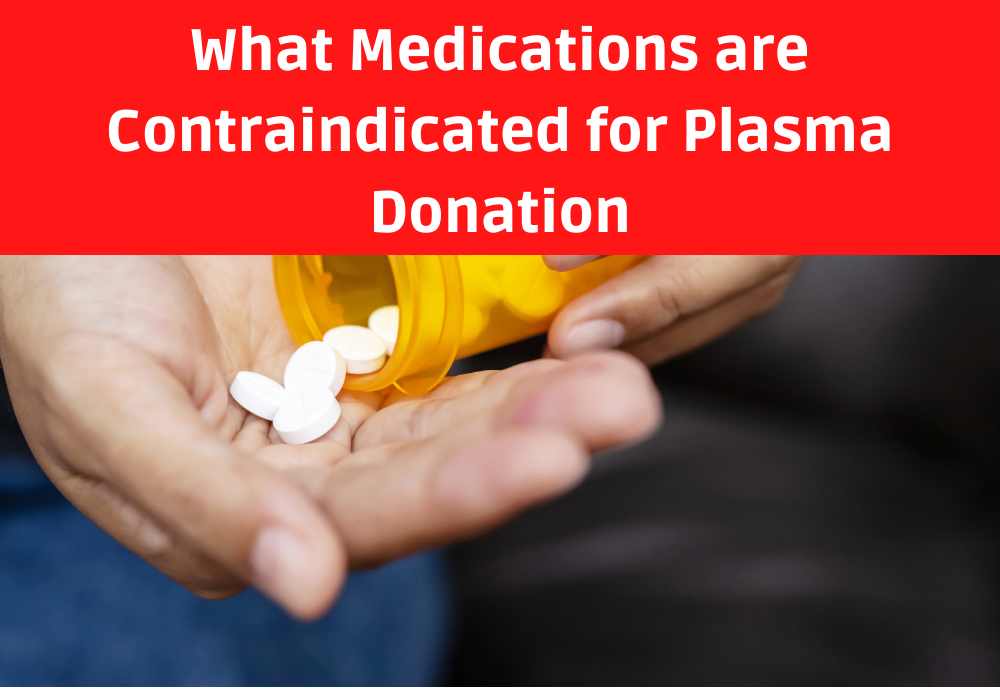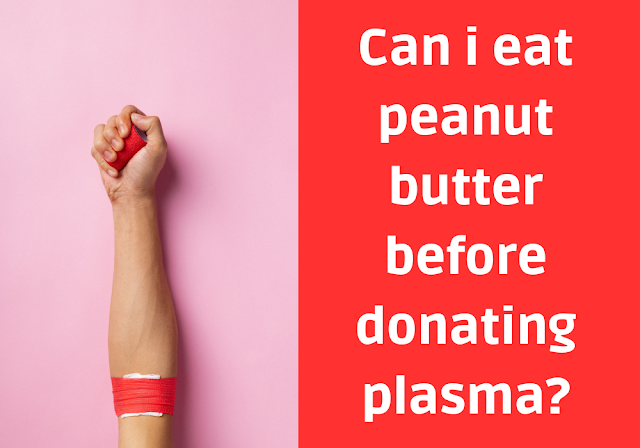What medications can you not take to donate plasma?
Introduction
Plasma is a vital component of blood that helps to clot wounds, and it’s in high demand for those who need it. However, there are some medications that can disqualify you from donating. In this article, we’ll go over what medications you can’t take to donate plasma.
What is Plasma?
Plasma is the clear, straw-colored liquid portion of blood that holds the red blood cells and white blood cells in suspension. It is mainly water (90%), but also contains proteins, electrolytes, hormones, and nutrients. Plasma makes up about 55% of our blood volume and is vital for maintaining fluid balance in our bodies.
We rely on plasma to perform many important functions, including:
- - transporting oxygen and nutrients to our cells
- - fighting infection by carrying antibodies and white blood cells
- - clotting blood to stop bleeding
- - carrying waste products away from our cells
Because plasma is so important, we need to make sure that it is safe and clean for transfusion. That's why all plasma donations are carefully screened and tested before they can be used.
What is the Plasma Donation Process?
Donating plasma is a process where blood is drawn from the donor, the plasma is separated out, and the remaining blood components are returned to the donor. The process takes about an hour and is usually done at a plasma center.
There are many different medications that can disqualify someone from donating plasma. These include but are not limited to: aspirin, ibuprofen, naproxen, warfarin, heparin, and any other anti-inflammatory medications. Some antibiotics may also disqualify someone from donating. It is important to check with the plasma center before taking any medication, even over-the-counter drugs.
Who is Eligible to Donate Plasma?
There are a few medications that may disqualify you from donating plasma. These include blood thinners, insulin, and certain heart medications. If you take any of these medications, please consult with your doctor before attempting to donate plasma.
What are the Health Risks Associated with Plasma Donation?
Plasma donation is a great way to help others in need, but it's important to be aware of the potential health risks involved. While most people don't experience any serious side effects, some may experience dizziness, fainting, or bruising at the needle site. In rare cases, more serious complications can occur, such as infection or blood clotting. If you have any concerns about donating plasma, be sure to speak with your doctor beforehand.
What Medications are Contraindicated for Plasma Donation?
There are a few medications that are contraindicated for plasma donation. These include: blood thinners, immunosuppressants, and certain cancer treatments. If you are taking any of these medications, you will not be able to donate plasma.There are a few medications that you cannot take if you want to donate plasma. These include blood thinners, immunosuppressants, and cancer treatments. If you are taking any of these medications, you will not be able to donate plasma.
Are There Any Other Restrictions for Plasma Donation?
In addition to not being able to take certain medications, there are a few other restrictions for plasma donation. For example, you must be in good health and feeling well on the day of donation. You also cannot have any active infections, including colds or flu. Donors must also be at least 18 years old (16 with parental consent), weigh at least 110 pounds, and have a valid photo ID.
Understand Medications And Their Impact On Plasma Donation
This article takes a comprehensive look at what medications interact with plasma donation and whether they will restrict or prevent your ability to donate.
Effects of Medications on Plasma Donation
There are a variety of medications that can impact plasma donation. For example, some blood pressure medications can cause low blood pressure, which may make it difficult to donate plasma. Other medications, such as those taken for conditions like diabetes or high cholesterol, may affect the clotting ability of your blood and make it difficult to donate. It's important to talk to your doctor or a staff member at the plasma donation center before you donate, to make sure that your medication will not impact your donation.
List of Known Medications that Affect Plasma Donation
There are a variety of medications that can affect plasma donation. Some of these medications include:
- Blood thinners: These medications can affect the clotting factors in your blood, making it more difficult for your blood to clot. If you take blood thinners, you may not be able to donate plasma.
- Certain antibiotics: These medications can affect the proteins in your blood, making it unsuitable for donation.
- Heart medication: These medications can affect the electrolytes in your blood, making it unsuitable for donation.
- HIV medication: These medications can affect the immune cells in your blood, making it unsuitable for donation.
If you are taking any of these medications, please consult with a doctor or medical professional before attempting to donate plasma.
Carriers of Disease in Blood Donations
There are many different diseases that can be transmitted through blood transfusions. While most of these diseases are rare, it is important to be aware of the potential risks involved in blood donation. Some of the more common diseases that can be transmitted through blood include:
Hepatitis B – This disease is caused by a virus that attacks the liver. Symptoms of hepatitis B include fever, fatigue, loss of appetite, nausea, and yellowing of the skin and eyes (jaundice). Hepatitis B is usually spread through contact with contaminated blood, such as during a blood transfusion.
Hepatitis C – This disease is also caused by a virus that attacks the liver. Symptoms of hepatitis C include fever, fatigue, loss of appetite, nausea, and jaundice. Hepatitis C is usually spread through contact with contaminated blood, such as during a blood transfusion.
Human Immunodeficiency Virus (HIV) – This virus attacks the body’s immune system and can eventually lead to AIDS. Symptoms of HIV infection include fever, rash, fatigue, and enlarged lymph nodes. HIV is usually spread through contact with contaminated blood or body fluids, such as during a blood transfusion
Risk Factors for Diseases Transmitted through Blood Donation
There is always a risk of contracting diseases through blood donation, but there are certain factors that can increase your risk. If you have any of the following conditions, you should not donate blood:
- HIV/AIDS -Hepatitis B or C
- Active tuberculosis
- Syphilis
In addition, you should not donate blood if you have recently had a piercing or tattoo, as there is a risk of infection. If you are taking any medication, it is important to check with a staff member before donating, as some medications can make your blood unsuitable for donation.
Am I Eligible to Give Blood?
There are a few things to take into account when determining whether or not you are eligible to give blood. These include your age, health, and medication history. Let's take a closer look at each of these factors: Age: You must be at least 18 years old to give blood. However, there is no upper age limit. As long as you are in good health, you should be able to donate. Health: You will need to have a physical exam before you can donate. This is to make sure that you are in good health and that it is safe for you to give blood. If you have any medical conditions, please let the staff know so that they can determine if it is safe for you to donate. Medication History: Some medications can impact your ability to donate blood. If you are taking any prescription or over-the-counter medications, please let the staff know so they can check if it is safe for you to donate.
Conclusion
Donating plasma is a great way to help others while also earning some extra money. However, it's important to understand how your medications can impact your ability to donate. Some drugs can make you ineligible to donate, while others may require you to wait a certain amount of time before donating. Be sure to check with your doctor or the plasma donation center before Donation day, so you know what to expect.







